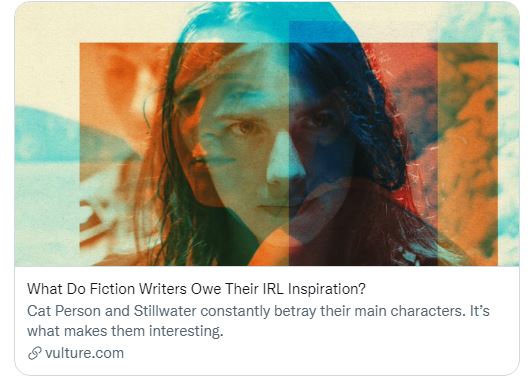
With all these new #BritneySpears documentaries out, I'm asking myself: Did Britney participate in any of them? Did she consent to them? Did she want them to exist? Does anyone care?
/a thread
/a thread
The answer to the first two questions is NO. She did not participate, or grant her approval. And while I'm sure the documentary film-makers would have preferred that she gave them her approval, when they didn't, they ploughed ahead anyway. Is that OK?
When the filmmakers @rodblackhurst and @brimcgi approached me about the film that became the Netflix documentary "Amanda Knox," they told me they'd interviewed dozens of people, they'd been in Perugia, covering the case for years...
but even given all that investment, they told me they wouldn't make the documentary without my participation. That was the opposite of the usual coercive treatment I've been given by filmmakers: "We're telling your story; don't miss your chance to have your say in it."
And it's a large reason why I participated in their film. They had the ethical sense to understand that I would be deeply impacted by that film, and that my consent and participation mattered. They decided it was better to make no film than one without me.
Now, in Britney's case, it's complicated, because her own voice and authorship of her life has been silenced and limited by the conservatorship. Doc filmmakers rightly worry that their requests for an interview may never reach her, that they get blocked by the gatekeepers.
And there are many arguments to be made that these films are to Britney's benefit--they help her cause, they raise awareness of the injustice she's suffered. All that may be true. They still didn't include her or get her approval to tell a story about her.
How does Britney feel about that? In February, after the NYT documentary Framing Britney Spears, she wrote "No matter what we think we know about a person's life it is nothing compared to the actual person living behind the lens."
https://twitter.com/britneyspears/status/1359284030735192064
On Instagram, she said she she felt judged and embarrassed by the light they put her in. That she cried for two weeks.
rollingstone.com/music/music-ne…
rollingstone.com/music/music-ne…

But these films have such good intentions! Right? The director of #BritneyVsSpears is an admitted fan, who cares deeply for what Britney has gone through. She truly hopes Britney likes the film, she told the LA Times.
latimes.com/entertainment-…
latimes.com/entertainment-…
And she took pains to not cause harm by refusing to include footage Britney has said is traumatizing. 

That kind of respect is worth admiring in a doc filmmaker. But for me, there's still the issue of consent. The director justifies making this film without it like this: "She wants to get out of the conservatorship, so therefore we should know what is going on inside it."
It's a compelling argument. It's not obviously wrong or unethical. Britney has been silenced. She has expressed that she wants out. This film, and others, are aiding her cause. Is that the same as consent? Did Britney need or want these filmmakers to tell her story this way?
One critic notes that nothing has been more powerful than when Britney spoke directly:
"the sound of her own voice describing her desperation...fear and anger stops me in my tracks, more than any other interview or document ever could."
huffpost.com/entry/britney-…
"the sound of her own voice describing her desperation...fear and anger stops me in my tracks, more than any other interview or document ever could."
huffpost.com/entry/britney-…
It's not surprising to me that Britney's own testimony would be more powerful than these documentaries telling a story about her, without her voice or approval.
Did we need these documentaries? Did Britney? Or has she been the prime force to win the battle over ending her conservatorship, without the need for all of us cheer from the sidelines?
And perhaps the most central question: Why is Britney's private legal battle in the public interest? This isn't a concert, or an album. It's not designed as a piece of entertainment, but our hunger is relentless.
Once a person becomes a public figure, should every facet of their life be fair game for infotainment? I'd like to live in a world where Britney, and Britney alone, gets to decide if she wants her personal legal drama to serve as your next Netflix binge.
All that said, I'm not condemning the film-makers who have covered this incredible story. I just think it's worth pausing to ask the questions I've asked here, and whether we should treat the next person, and the next, like we've treated Britney her entire life.
• • •
Missing some Tweet in this thread? You can try to
force a refresh







